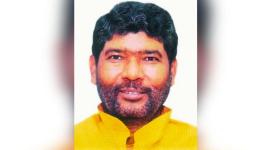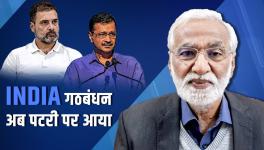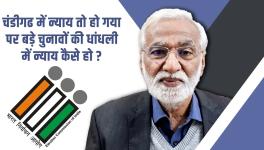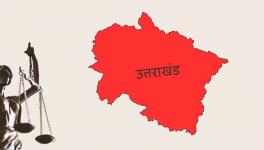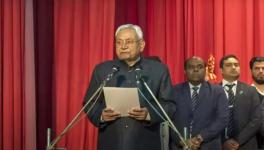A Brave New Glass House World
The Electronic Frontier Foundation (EFF) was set up in the US in 1990 to not only protect civil liberties on the Internet but also to identify what these rights in the digital age.
Barlow one of the founders of EFF talks about the ignorance of the law enforcement agencies, “great paroxysm of governmental confusion during which everyone's liberties would become at risk”. In India, the current debate over social media and the flurry of court action shows the risk that we have to our freedom, not only because there is a clear drive to suppress them, but also because the people in power do not even understand what can or cannot be done.
At the top of this pantheon of ignorance is the judiciary. The Supreme Court is examining pre-censorship in reporting of court cases. Justice Markandey Katju, a distinguished jurist from his time in Supreme Court and now the Chairperson of the Press Council, disgraced himself recently by not even knowing which is the Ministry that looks after Internet issues; he wrote a letter to the Ministry of Information and Broadcasting on censoring the net when the relevant ministry is the Ministry of Communications and Information Technology. He has also been vocal on the need to “control” the Internet without applying his judicial mind to either the technology involved or the legal issues of jurisdiction.
Controlling the Internet
The Government in its ignorance believes that as long as the Googles and the Facebooks can be brought to heel, most of the net would be sanitised. It wants the large Internet companies to institute private censorship on its behalf. The limitation on such an approach becomes clear when we see that Facebook or Google could be made to comply on the recent Manu Singhvi video, but the video still went viral. Putting digital fingers in the dike fails to stop leaks in the Internet age.
The Indian government should have learnt a lesson from the Wikileaks. The US government' has a much greater clout on the net – it controls the root-servers which direct all traffic on the net and all the major Internet platforms are US companies and therefore subject to the US laws. In spite of this, it failed to stop the leaks of Afghanistan and Iraq warlogs.
If we look at the deep discomfort that the establishment today has is that while it knows how to control media houses and big corporations, it does not know how to control user generated content. Whether it is in India or in the US, there is little doubt that corporate interests has always meant that a certain set of issues are not printed or broadcast. In the US, the TV and the newspaper coverage before the Iraq War never questioned that Saddam had WMD's, even they had hard information to the contrary. Even after the Iraq WMD fiasco. the debate over Iran's nuclear intentions are almost of a similar kind. In India, the media will generally treat the Gandhi family with kid-gloves. For all of them, the social media today upsets the comfortable equilibrium between the media houses and the governing classes.
The social media makes it impossible to bury news that the rich and powerful want buried. Even if they get a court order to gag the media, the news does not stay gagged. It leaks out – whether it is Trafigura trying to gag media in UK over its illegal waste disposal in Africa or a Manu Singhvi taking an injunction on broadcasting his video. Or a Ryan Giggs, the footballer stopping the media from publishing his name on a sexcapade. The question is not only for Governments, companies and public figures. The question is also for the courts – is it worthwhile trying to stop such publications today?
Privacy in the Internet Age
While the rich and powerful – Governments, corporations – would like to control the Internet, they also want access to data. They want to know what you are doing, which sites you visit, what do you write in your emails, who are your contacts, in short all about your life on the net. And as servers belonging to ISP's, Googles, Facebooks, etc., collect this information, the Government wants access to them. At the same time, they believe that they can control what people should see.
The Governments have a schizophrenic vision when it comes to privacy. There are various laws on privacy – the European Union having some strong legislation on this count. Simultaneously, they are promoting bills in legislatures that effectively demand that companies store every bit of private data of people on the net and share it with government agencies.
Recently, the US House of Representatives has passed Cyber Intelligence Sharing and Protection Act (CISPA). The US Senate has yet to pass this. According to the Electronic Frontier Foundation, this bill “would allow companies to bypass all existing privacy law to spy on communications and pass sensitive user data to the government.” A similar snooping Bill – Communications Capabilities Development Programme – is in the offing in UK on which Tim Berners-Lee, the father of the World Wide Web, has opposed for the same reasons.
The issue is simple. If the companies – Internet Service providers for example, store all sites that you visit – hold and share such data with Government agencies, this data can easily leak out. People will have access to this data and can make copies of this as simply as the warlogs were copied. And as Mr. Singhvi found to his cost, once the data can be copied, its percolation to the world is difficult to control.
The question is to whom does this data belong? Does it belong to us and can companies sell it to advertisers or give it to governments? If we have a right to privacy, should our data be collected, stored and sold or shared without our consent?
The Internet companies survive on selling our personalised profiles and data. This is how advertisers target people – based on what we do on the net. This is the source of Google's and Facebook's revenues. We no longer see an unfiltered net – the net is filtered based on our past on the net. At this stage, it is already too late to change the nature of the net and the business model that has emerged out of it. Whether we like it or not, our data is already stored on countless disks and files. The question now is whether we can still preserve our anonymity on the net?
This is the key question regarding privacy. Yes, our data is used by machines to show us different products and show us links based on our profiles and machine run algorithms. It is conversion of this data for human or Government use that creates new dangers.
The Government believes that all that it knows will however remain secret and only be used for Government purpose. That it will provide a handle for it to bend people to its will. What it forgets is that the Government also consists of people. If the Government in the abstract has the power of blackmailing individuals, then individuals in the Government can also blackmail others in the Government. And even worse for the Government, leak information about people in the Government out to the whole world.
That is why the need for privacy laws and what the Government can snoop into or not. That is why various protections on what the Government can see about people. That is why the protection of the non-digital age cannot change in the digital age. If a telephone can be tapped only after a due process prescribed in law, so also for tapping into email conversations. If police has to follow a legal procedure to search a person's house, so also to search his data.
The danger in the digital age is that the data is not stored by the concerned individuals but by intermediaries. And these intermediaries are companies with their own commercial interests. The companies will pass on private data if governments ask them, unless there are clear privacy laws preventing them from doing so.
This is the new battle – how do we prevent governments from taking over our digital lives? And will governments have the good sense to realise that they also consist of people?
Currently, in India the IT Rules pertaining to censorship of the Internet have become controversial. But no less important are the Rules concerning access to data and emails. In the absence of clear legalisation on privacy here, how far can the Government go and how can the companies deny private data is still ambiguous. While the battle in EU and the US is to see that various new legislation does not breach the privacy laws, our task is also to see the creation of a good legislation on privacy. Otherwise, we are all at risk.
The other alternative is to accept that in the new digital age, nothing is likely to remain secret. If you do not want people to know what you are doing, the only solution might very well be don't do them. If the governments end privacy as they seem to be doing, it will not just be big brother watching over all of us. It will also be everybody watching everybody; where each of us can become part of a reality show.
Get the latest reports & analysis with people's perspective on Protests, movements & deep analytical videos, discussions of the current affairs in your Telegram app. Subscribe to NewsClick's Telegram channel & get Real-Time updates on stories, as they get published on our website.











